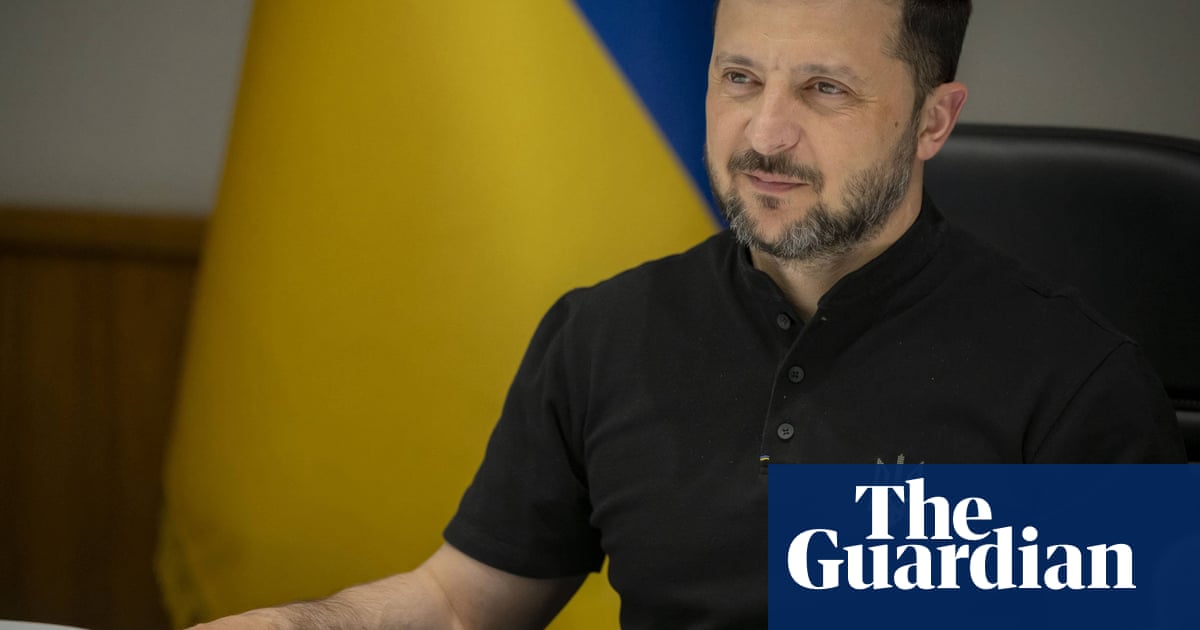Ukrainian President Volodymyr Zelenskyy hasdemanded Russia observe a ceasefirebeginning on Monday and challenged Vladimir Putin to meet in person for peace talks in Istanbul on Thursday. The comments came on Sunday after the Russian president rejected a demand fromUkraineand European allies to sign up to a 30-day ceasefire, but said Russia was ready for direct negotiations with Ukraine in Turkey.
“We await a full and lasting ceasefire, starting from tomorrow [Monday], to provide the necessary basis for diplomacy,” the Ukrainian president said in a statement. “There is no point in prolonging the killings. And I will be waiting for Putin in Türkiye on Thursday. Personally. I hope that this time the Russians will not look for excuses.”
It was not clear if Zelenskyy was conditioning his presence in Istanbul on the Monday ceasefire holding, and there was no immediate comment from the Kremlin on whether Putin would go. In the early hours of Sunday, Putin had rejected aproposal by Kyiv and its European allies for a 30-day ceasefire, instead demanding direct talks with Ukraine without preconditions. He did not say who would attend.
US President Donald Trump had put pressure on Zelenskyy to take up the offer of talks, posting “HAVE THE MEETING, NOW!!!” on his Truth Social platform. Zelenskyy’s comments came shortly afterwards. Trump wrote: “President Putin of Russia doesn’t want to have a Cease Fire Agreement with Ukraine, but rather wants to meet on Thursday, in Turkey, to negotiate a possible end to the BLOODBATH. Ukraine should agree to this, IMMEDIATELY. At least they will be able to determine whether or not a deal is possible, and if it is not, European leaders, and the U.S., will know where everything stands, and can proceed accordingly!”
Ukraine’s European allies insisted on a ceasefire being implemented before any direct talks between Kyiv and Moscow.Russia’s offer to negotiate directly with Ukraine was “a good sign” but “far from sufficient”, German Chancellor Friedrich Merz said on Sunday. “We expect Moscow to agree to a ceasefire that allows real talks to take place. First the weapons must be silenced, then the discussions can begin,” he said in a statement. French President Emmanuel Macron also insisted on “the necessity for a ceasefire”, the Élysée Palace said adding that Macron had spoken earlier on Sunday to his German, British and Polish counterparts, as well as Trump and Zelenskyy.
Russian secret services were behind a massive fire that nearly completely destroyed a Warsaw shopping centre in May 2024, Polish prime minister Donald Tusk said on Sunday after a year of investigation into the case.“We already know for sure that the large fire on Marywilska was the result of arson ordered by Russian services. The actions were coordinated by a person staying in Russia. Some of the perpetrators are already in custody, the rest have been identified and are being sought,” Tusk said on X.
Pope Leo XIVhascalled for a just and lasting peace in Ukraineand pleaded for an end to global conflicts in his first Sunday address at the Vatican. “I carry in my heart the sufferings of the beloved Ukrainian people,” he said. “Let everything possible be done to achieve genuine, just and lasting peace as soon as possible.”
Kyiv on Sunday said that Moscow had launched more than 100 drones into Ukraine at night, shortly after a Russian 72-hour ceasefire – which both sides said was not properly observed – had ended at midnight. “On the night of 11 May (from 2:00 am on 11 May), the enemy attacked with 108 Shahed attack drones and various types of imitator drones,” Kyiv’s air force said, adding that it had downed 60 of them.
